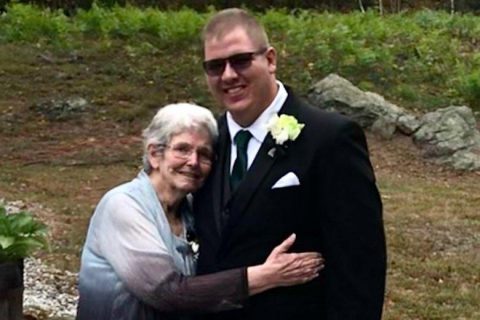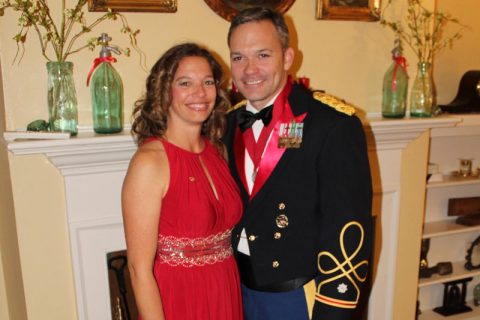After a Decade, Mesothelioma Survivor Still Fighting the Fight
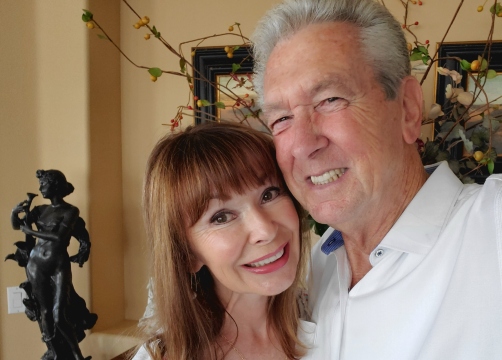
Fact Checked | Written by: Tim Povtak | Last Update: 10/23/2024 | 6 Min Read
Maryla Latham remembers vividly the day her husband was diagnosed with pleural mesothelioma, and driving home together in a numb silence after hearing he had six to 12 months to live.
Terry Latham was 69 at the time, otherwise healthy and happy and looking forward to a Southern California beachfront retirement lifestyle with the love of his life.
He already had bravely fought off two previous cancers scares. Then came this punch in the face called mesothelioma.
“We just looked at each other. We were stunned, devastated, afraid. But he’s a fighter, and I knew he wouldn’t give up easily,” his wife recalled. “Driving home, I told him, ‘Look, these are only doctors telling us this now. They are not gods. Let’s see what we can do.’”
That was 10 years ago. Since then, they have done a lot.
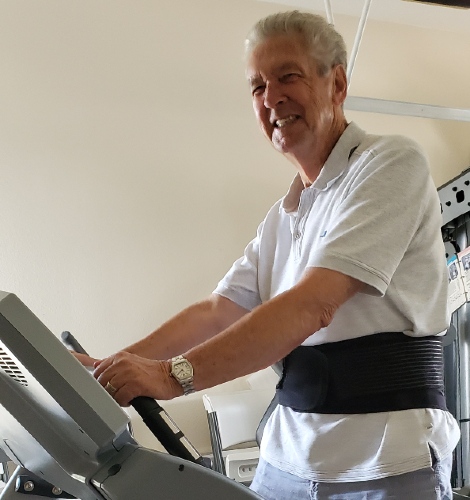
Survivor Credits Wife, Surgeon with His Longevity
Today Latham is one of America’s longest-living pleural mesothelioma survivors, an inspiration to many and a living testament to the expertise of thoracic surgeon Dr. Robert Cameron and his staff at the Ronald Reagan UCLA Medical Center.
Latham continues to thrive, overcoming myriad health issues that long ago would have sacked a less-determined man.
Bladder and prostate cancer were beaten. Fractured vertebrae and chronic osteoporosis came next. Congenital heart failure was the latest setback, diagnosed just six months ago.
Mesothelioma, an aggressive cancer caused almost exclusively by asbestos exposure, has been in the midst of it all.
“The pain never really goes away now. It’s a tough disease to fight, but you can fight it,” Latham said. “People should know you can get through it, but you can’t stop fighting. Whatever you do, don’t give up.”
After his initial mesothelioma diagnosis in 2010, Latham was led to Cameron, a specialist at UCLA who has pioneered pleurectomy and decortication, an aggressive, lung-sparing surgery that has led to longer survival and better quality of life for many patients.
Cameron started the nearby Pacific Mesothelioma Center, a nonprofit founded on the belief that mesothelioma could be a chronic, treatable disease, instead of the incurable cancer many doctors still consider it.
“Dr. Cameron saved my life. He’s the miracle worker,” Latham said. “And my wife is the miracle keeper.”
Supporting October Mesothelioma Fundraiser
Latham and his wife live in Dana Point, California, 70 miles south of UCLA, but they have stayed close with Cameron and the staff at PMC, mentoring any newly diagnosed patients who need encouragement.
As usual, Latham will be supporting PMC’s 9th annual Virtual Walk/Hike for Mesothelioma fundraiser Oct. 25.
His checkups with Cameron over the past decade have gone from every three months, to every six months, to once a year. His more pressing issue today is the congenital heart failure, but he refuses to concede.
“Dr. Cameron always said — and he was confident — from the time I left surgery, he said I would not die from mesothelioma,” Latham said. “I didn’t think I would last this long. But you have a choice: You can either give out and give up, or you can stand up and fight.”
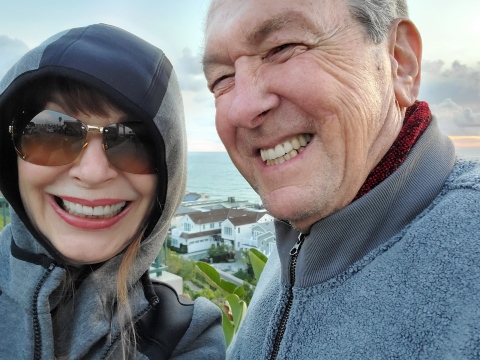
UK Transplants Loving America
Latham, 79, has been a fighter overcoming long odds for much of his life. An Englishman, he grew up poor in the United Kingdom, but was a gifted athlete whose strength and determination brought him to the United States in 1970.
It was love at first sight.
He worked construction for almost 10 years, where he likely was exposed to the asbestos that eventually led to mesothelioma cancer. He became a successful real estate broker more than 40 years ago.
“I was unlucky to have gotten this disease, but have absolutely no regrets. This country has been fantastic to me,” Latham said. “I lived through the best years in American history, from the ’70s to 2000. I worked and worked and worked, made and lost a couple of fortunes. Obviously I don’t want to die, but life has been a pleasure here.”
Mesothelioma Survivor Still Looks to the Future
Latham’s pace has slowed considerably. Once an avid fitness buff, he truly misses running on the beach, the weightlifting that made him so strong and the rugby he once played so well, even at an advanced age.
At the time of his original diagnosis, Latham may have been the most fit-looking mesothelioma patient ever seen. Hardly anyone believed he was sick.
“If not for this mesothelioma, I’d be as strong as a bull today,” he said. “But I’ve lost all my muscle, inches and pounds. It’s been devastating for me, but I keep going. You have to keep fighting.”
Today, he walks the treadmill in his garage for 30 minutes. He takes walks in the neighborhood, although hills give him problems. He walks the halls of his sizable home, making sure to record 3,000 to 4,000 steps before the day has ended.
Latham credits Maryla, 16 years younger, for both his physical and mental well-being. She knows nutrition, medicine and psychology. They have been married for 21 years.
“You can’t fight for your life without a positive attitude. It’s a must. I’ve had times when I wanted to give up through all this, and I’ve said to her a few times, ‘I’m so sick of being sick, that I just feel like dying,’” he said. “And she’ll say, ‘Don’t you dare come to me with that attitude.’ She’s my rock that has been so important to all this.”
Despite the medical issues, their confidence in a future together has sparked serious consideration about moving across the country to downsize, from Southern California to Central Florida.
Both have grown weary of the changing face of their home state.
“The move would be quite an undertaking — exhausting, but that’s okay,” Latham said. “It’s something we’re considering now. We could handle it. We’re still in this together, and I’m feeling good about it.”

